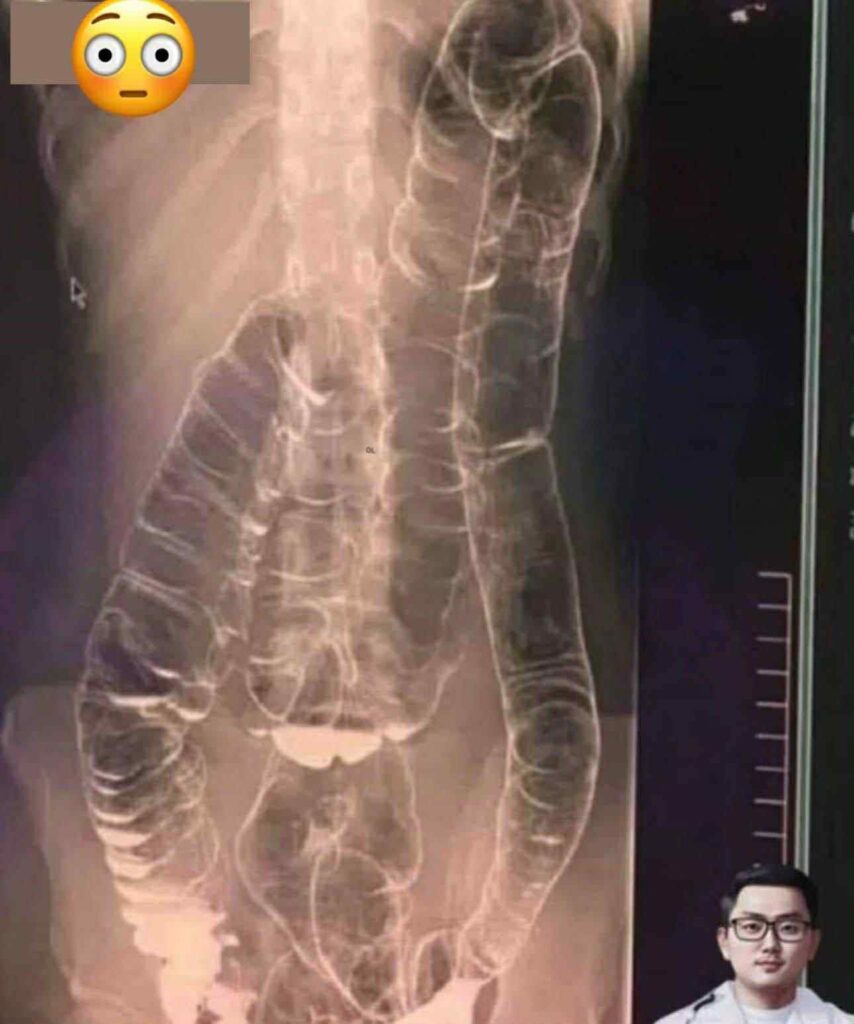Chronic Constipation Isn’t “Just Constipation”: Why Delays Can Turn Dangerous
Constipation may feel like a small nuisance, but letting it drag on can trigger serious health problems. A striking real-world case shows how chronic constipation can spiral—and why it deserves prompt attention.
A Case That Raised the Alarm
After years of ongoing constipation, a young woman went more than two weeks without a bowel movement. As her symptoms worsened, she finally sought care—and the findings were sobering.
When stool backs up in the colon, discomfort and bloating intensify. Over time, the large intestine can stretch beyond normal capacity as it attempts to hold the excess waste. Imaging in this case showed a massively distended colon, so enlarged it extended toward the chest, close to the heart. The expansion had smoothed out the colon’s normal folds, which are important for function. Without treatment, such extreme dilation can become life-threatening.
How Chronic Constipation Harms the Body
Severe Colon Distension
One of the most dangerous effects is significant over-stretching of the colon. An overstretched bowel loses tone and contracts less effectively, making it even harder to pass stool—a vicious cycle that deepens the constipation.
Stool Stagnation and Toxin Reabsorption
When stool remains in place too long, byproducts from bacteria and other compounds may be reabsorbed. People can experience issues such as bloating, fatigue, foul breath, skin breakouts, and a generally lowered sense of well-being.
Hemorrhoids and Anal Fissures
Straining against hard stools puts pressure on rectal veins, contributing to painful, sometimes bleeding hemorrhoids. Severe straining can also cause small tears (anal fissures), which lead to sharp pain during bowel movements.
Bowel Obstruction and Ischemia
In extreme cases, stool impaction can block the intestine entirely. Obstruction may cut off blood flow to segments of the gut, raising the risk of infection and tissue death (necrosis). These scenarios often require urgent surgery to remove damaged sections.
Colorectal Cancer Risk
Studies have reported an association between long-standing constipation and elevated colorectal cancer risk. Prolonged contact with potentially harmful compounds and chronic inflammation may contribute to abnormal cell changes over time.
Practical Prevention and Relief Strategies
Boost Daily Fiber
Aim to increase dietary fiber with whole grains, legumes, nuts, seeds, fruits, and vegetables. Options like prunes, pears, apples, flaxseed, and chia act as gentle, natural laxatives that support regularity.
Prioritize Hydration
Drink roughly 2–3 liters (8–12 cups) of fluids daily to soften stool and ease passage. Many people find that warm water—such as a morning mug with lemon—helps stimulate the bowels.
Move Your Body
Activity stimulates intestinal motility. Even 15–30 minutes of daily movement—walking, light yoga, or stretching—can meaningfully improve bowel function.
Create a Consistent Bathroom Routine
Try to use the bathroom at the same time each day, ideally after meals when the colon is naturally more active. Avoid “holding it,” which can worsen constipation over time.
Cut Back on Low-Fiber, Highly Processed Foods
Limit items that slow digestion or harden stools, such as red meat, full-fat dairy, fried or fast foods, and refined carbohydrates (white bread, pastries).
Consider Gentle Aids
Herbal teas (peppermint, fennel, ginger) may soothe digestion. Some people benefit from magnesium supplements or small amounts of aloe vera juice. Discuss new supplements with a healthcare professional if you have medical conditions or take medications.
When to Seek Medical Care
If constipation lasts beyond a few days despite lifestyle adjustments—or if you develop severe bloating, vomiting, intense pain, or blood in the stool—seek medical attention. Persistent symptoms (longer than a week) deserve evaluation to rule out impaction or other underlying issues.
Key Takeaway
Ignoring constipation can transform a minor complaint into a major health risk. Proactive habits—adequate fiber, hydration, movement, routine, and a balanced diet—go a long way toward prevention. Listen to your body’s signals and adjust early; your long-term digestive health depends on it.
